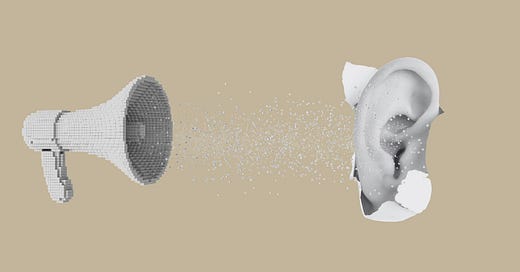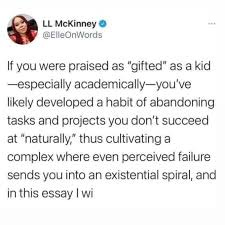The Stories We Tell Ourselves (And Why They Matter)
A personal reflection on identity, inner narratives, and learning to re-author your life.
Since the dramatic upending of my manuscript, I’ve been reflecting a lot on the stories we tell ourselves. We all have invisible (often unreliable!) narrators that take up residence in our heads. They spin stories about who we are, what we’re capable of, and how the world perceives us.
If given free rein, that narrator can become overwhelmingly loud, drowning out all the truth and beauty that makes us unmistakable, uniquely us.
So, what do you do if the story you’ve been telling yourself isn’t true?
How Our Stories Shape Us
Humans are wired for storytelling, and I don’t mean books and movies and podcasts. We process life in stories. I know I do. When I was a kid, I spent much of my time daydreaming—so much so, it toed the line of being maladaptive. As an introvert, I often joke about my “rich inner world”—but it’s not a joke. I really do have one, and if I don’t befriend it and acknowledge it for what it is (read: not always based in reality), it wreaks havoc on my waking life.
Moreover, we all suffer from confirmation bias. It’s much easier to digest information aligned with your pre-existing beliefs than data that challenges them. We consume information, and the engine gets fed, strengthening those narratives with “data.”
If I believe I’m “unlucky in love,” I may ignore evidence to the contrary, reinforcing my bias by putting myself in (or excluding myself from) situations that would make it untrue.
Carol Dweck’s research on growth mindset versus fixed mindset is useful here. A fixed mindset is a zero-sum game; if we see our personal stories as fixed—etched in stone by past failures, labels, expectations—we lock ourselves into roles that may no longer fit. But a growth mindset allows us to see those stories as drafts, not final versions.
This is critical because how we think about ourselves and the world can significantly shape who we are and how we show up to the world.
Origin Stories
These stories don’t just materialize out of thin air; they’re borne of experience. Family narratives, cultural conditioning, and past experiences all lend main and B plots to our internal narrative.
How many of you had parents who considered you “gifted”?
…
….
…..
How’s the existential dread and/or inescapable Type-A job treating you?
Cultural conditioning plays a big role, too. As a woman, I’m all too familiar with this one. I forget, are we supposed to be “trad wives” or feminists this week? Bushy eyebrows or pencil thin? Quiet and demure or spitfire and caustic? Drop the megaphone, mainstream media. We’ve all had enough.
For me, past experiences are some of the strongest influencers. Whether it was that gut-renching heartbreak that still echoes in the chambers of your heart or that dream that slipped through your fingers, we all feel the reverberations of our most impactful moments well into the future.
We must not let these hauntings dictate new realities.
Writing Your Own Story
In retrospect, I think the original impetus for writing my novel was to release the demons of my past. Before my words were a book, they were journal entries detailing some of the most tumultuous eras of my life.
Through constructive storytelling, I was able to wield power over them and turn them into something that touched on universal themes we all deal with: our relationships with ourselves, how we show up in the world, and how we find meaning.
Before I wrote that story, I had to do a lot of internal work to figure out where limiting beliefs and old ideas about who I was were holding me back. Let me tell you, there were a lot of recurring negative stories. With the help of some folks much wiser than I, I was able to build better, stronger, more empowering narratives about myself.
But those narratives require daily action. I have to show up to my story. Sometimes I have to wrestle with contradictions to my story. Sometimes, I have to yield to new chapters I didn’t anticipate. Still, I hold the pen, and you do, too.
So what story are you telling yourself—and what’s stopping you from writing a better one?
-Ashley






I was once asked, what does your inner ally say? I was like I have an inner ally? #foodforthought